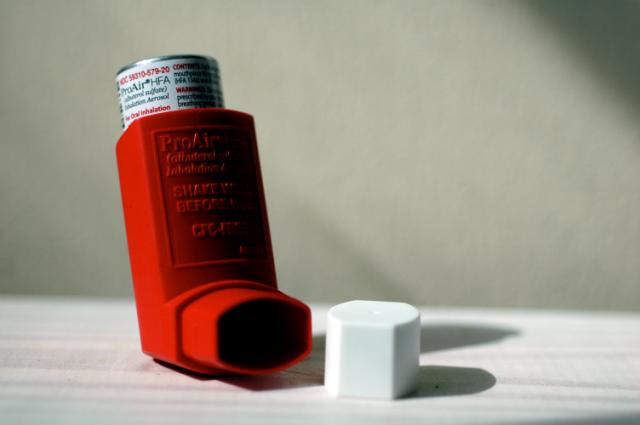Results from the world’s largest steroid sparing trial in severe asthma patients conducted to date show that AstraZeneca’s Fasenra (benralizumab) can eliminate the use of maintenance oral corticosteroids (OCS) in OCS-dependent asthma patients.
Fasenra was approved in 2017 as an add-on treatment for patients aged 12 years and older with severe asthma (specifically, severe eosinophilic asthma) in the US, EU, Japan and other countries to reduce events of worsening symptoms. Data from the new study shows that the drug can bypass the need for steroids, which is an important component of disease maintenance for OCS-dependent disease.
Results from the PONENTE Phase IIIb open-label trial evaluated Fasenra as a monotherapy, demonstrating, as a primary endpoint, that 62 percent of patients achieved complete elimination of daily OCS use.
Asthma affects approximately 339 million individuals worldwide, with approximately ten percent having severe asthma (about 34 million people). Severe asthma can be a debilitating and even fatal condition, with exacerbation of symptoms impeding lung function and affecting overall quality of life.
Related: Dexamethasone Becomes First Drug Shown to Reduce COVID-19-Related Mortality
Severe, uncontrolled asthma has a higher risk of mortality than severe asthma. More than one-third of severe asthmatic patients currently use chronic or intermittent OCS in conjunction with other therapies to control symptoms. Elevated eosinophils are seen in 70 percent or more of patients with severe asthma; these immune white blood cells can drive airway inflammation in some patients, causing some of the severe effects associated with the condition.
While steroids are a common base drug that Fasenra is usually added on top of, frequent or chronic OCS use can lead to serious adverse effects. This includes compromising the functioning of the adrenal glands, which can potentially lead to adrenal insufficiency, resulting in inadequate production of steroid hormones. It can also lead to weight gain, diabetes, osteoporosis, glaucoma, anxiety, depression and cardiovascular disease immunosuppression.
“Around 13.5 million people worldwide with severe asthma currently rely on oral corticosteroids to control exacerbations and prevent hospitalizations. However, over-reliance on oral corticosteroids can also cause significant health risks for patients, as well as additional strain on health systems,” said Mene Pangalos, AstraZeneca’s BioPharmaceuticals R&D chief, in a statement from the company.
Fasenra
Fasenra (benralizumab) is a monoclonal antibody that binds to the IL-5 receptor alpha on eosinophils and attracts natural killer cells to almost completely eradicate eosinophils via apoptosis (programmed cell death). Fasenra is currently under development for other eosinophilic diseases and chronic obstructive pulmonary disease. It received Orphan Drug Designation from the US Food and Drug Administration (FDA) for the treatment of eosinophilic granulomatosis with polyangiitis in 2018, and hypereosinophilic syndrome and eosinophilic oesophagitis in 2019.
Fasenra was developed by AstraZeneca and is in-licensed from BioWa, Inc., a wholly-owned subsidiary of Kyowa Kirin Co., Ltd., Japan.
PONENTE Trial
PONENTE is a multicenter, open-label, single-arm, Phase IIIb trial designed to evaluate the efficacy and safety of reducing daily OCS use after initiation of a 30 mg dose of Fasenra administered subcutaneously (SC) in adult patients with severe eosinophilic asthma. The patients were either on high-dose inhaled corticosteroids (ICS), long-acting beta2-agonist (LABA) or long-term OCS therapy with or without additional asthma controller(s).
PONENTE included almost 600 patients across Europe, North America, South America and Taiwan.
Prior to the start of the study, patients had been on maintenance OCS dose of ≥5 mg of prednisone for at least three months. The treatment period involved a four-week induction phase with no OCS adjustments, a variable OCS tapering phase and an ongoing 24 to 32-week maintenance phase. The variable tapering schedule was personalized and allowed for quicker OCS tapering from high OCS doses, while the longer maintenance phase allowed for evaluating the durability of the OCS reduction.
Professor Andrew Menzies-Gow, director of the Lung Division, Royal Brompton Hospital, London, UK, the principal investigator of the PONENTE trial, said, “The reductions achieved with the personalized oral corticosteroid tapering schedule are particularly important because adrenal insufficiency can be a barrier to safe and meaningful oral corticosteroid reduction. These data should inform severe asthma treatment guidelines and strengthen physicians’ confidence to more safely eliminate chronic oral corticosteroid use in their patients.”
The primary outcome measures of the trial were the proportion of patients achieving a 100 percent reduction in daily OCS dose and the proportion of patients achieving a 100 percent reduction, or a daily OCS dose of ≤5 mg, if the reason for no further OCS reduction was adrenal insufficiency, both sustained for at least four weeks without worsening of asthma.
While 62 percent of patients achieved complete elimination of daily OCS use, on the second primary endpoint, 81 percent of patients achieved complete elimination, or were able to reduce their daily OCS dose to 5 mg or less, when further reduction was not possible due to adrenal insufficiency, according to the study. Both primary endpoints were sustained for at least four weeks while maintaining asthma control.
“These data further support Fasenra’s clinical profile in eliminating oral corticosteroid use across a broader population of severe asthma patients,” said Pangalos.
The PONENTE trial adds to results from the ZONDA Phase III trial, which demonstrated that Fasenra allowed for a 75 percent reduction in steroid doses from baseline compared with a reduction of 25 percent for placebo. In the trial, more than half of Fasenra patients were completely weaned off of oral steroids, compared with 19 percent for the placebo group.
Fasenra is also looking to get FDA approval for chronic rhinosinusitis with nasal polyps, as is GlaxoSmithKline’s Nucala. There is growing competition in the inflammatory respiratory disease space, and particularly in anti-eosinophilic therapies. Last month, Nucala received FDA approval for the treatment of hypereosinophilic syndrome (HES), a rare condition marked by overproduction of eosinophils, becoming the first approved biologic for the condition. Fasenra has shown similar data for HES and may thus also be eyeing an approval of its for the indication.
This is good news for sufferers of debilitating respiratory conditions, as treatment options are expanding to more targeted, non-steroidal therapies.












Join or login to leave a comment
JOIN LOGIN